Have a question? 06 70 73 89 02
🔞 Not for sale to under 18s
🔥 20% off EVERYTHING on the site with the code: FLASH!!! 🔥 ( except accessories and gummies)
Have a question? 06 70 73 89 02
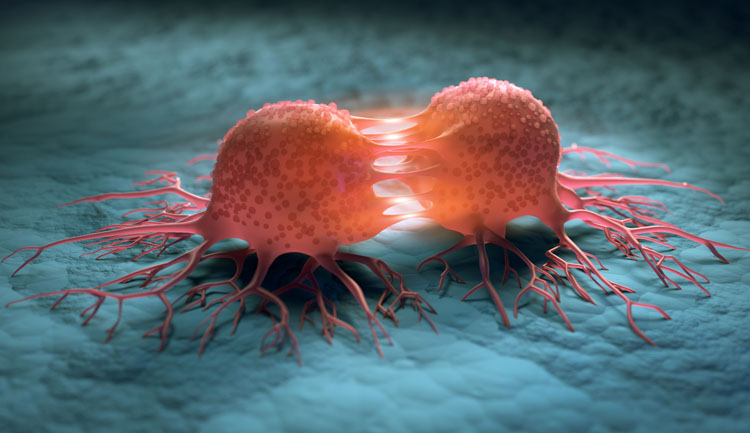
Cancer is one of the major challenges of our time, affecting millions of people worldwide every year. Environmental factors, pollution, stress, processed food, a sedentary lifestyle... The potential causes of its development are numerous and the subject of ongoing research. While modern medicine is constantly exploring new solutions to limit the proliferation of cancer cells, there is also growing interest in certain natural remedies that have been used for centuries.
Among them, hemp and more specifically CBD (cannabidiol) are attracting the attention of researchers for their potential effects on cancer cells. But what does science actually say on the subject? In this article, we take a closer look at existing scientific studies to better understand CBD's impact on cancer.
Cancer is the uncontrolled multiplication and uncontrolled spread of abnormal cells in the body.
Cells that have become dysfunctional as a result of DNA damage multiply uncontrollably. They form a mass in a specific organ or tissue. This mass of abnormal cells, called a tumor, will gradually invade the organ and impair its function.
Abnormal cells originating from the tumor can escape through blood and lymphatic vessels, ultimately contaminating neighboring organs. This is known as metastasis.
If the tumour remains in one place and does not spread to other parts of the body, and does not usually reappear after removal, it is said to be benign. Otherwise, the tumor is cancerous. If the cancerous cells are not eliminated, the progression of the disease will lead, more or less rapidly, to the death of the person affected.
The origin of cancer is due to internal factors (hereditary gene mutations, immune or hormonal system failure, age...) or external factors (environment, diet, stress...), but often several years have elapsed between exposure to external factors and the onset of the disease.
> Proportion of cancers linked to the main risk factors :
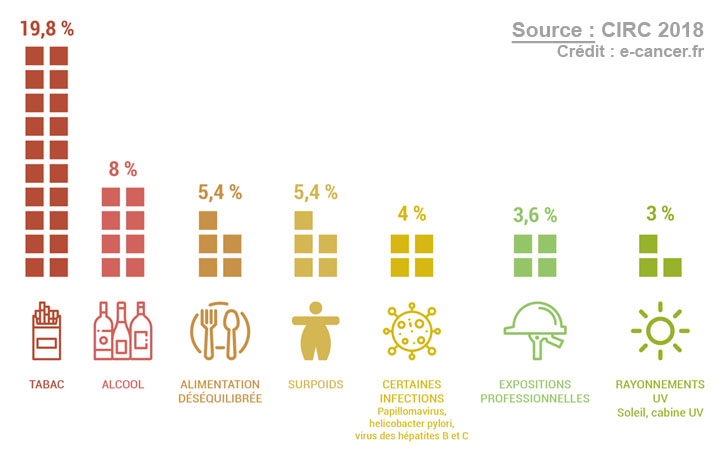
The treatment chosen will vary according to the type of cancer (radiotherapy, chemotherapy, hormone therapy, immunotherapy, surgery (removal of the tumor and surrounding tissue), etc.), and may consist of a combination of several alternatives.
Cannabidiol (CBD) is one of the many molecules derived from the hemp plant (cannaibis sativa L.), like THC*, but without the psychotropic effects.
* THC is a prohibited substance in France (if levels exceed 0.2%).
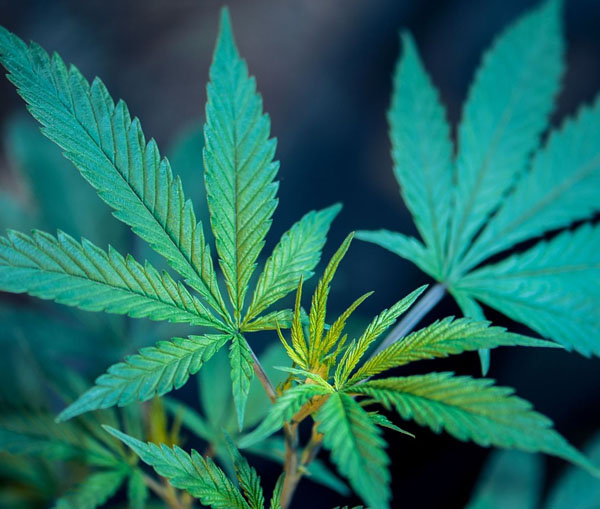
The benefits of CBD can be observed in many areas, and are the subject of a growing body of scientific research. Its action against cancer cells has been extensively studied.
Cancer occurs when the balance between cell proliferation and cell death is disturbed, through increased cell proliferation and/or reduced or deficient apoptosis (programmed cell death). Cells survive and multiply as a result of genetic abnormalities occurring during the cell's life, when they should normally have been destroyed by apoptosis.
A comprehensive review published in 2011 by the National Cancer Institute[1] , indicates that cannabinoids can induce antitumor effects through a variety of mechanisms, including induction of cell death (1), inhibition of cell growth (2) and inhibition of tumor angiogenesis invasion and metastasis (3).
Finally, the study points out that cannabinoids* appear to kill tumour cells but do not affect their non-transformed counterparts (4), and may even protect them from cell death.
A study published in 2019 in Nature magazine[2] concludes that CBD induces apoptosis in gastric cancer cells. In another 2011 study, CBD was found to induce apoptosis (programmed cell death) in a series of human breast cancers.
In the same study, CBD was also found to inhibit cell proliferation.
A 2019 study, on pancreatic cancer[3] states that " In vitro studies have consistently demonstrated tumor growth inhibitory effects with CBD, THC".
Angiogenesis[4] is the pathological process of forming new blood vessels from existing ones. This process is crucial to the growth of malignant tumors and the development of metastases.
A 2016 clinical study[5] by the University of Madrid claims that " CBD exerts a significant anticancer effect - and in particular inhibition of invasiveness and metastasis" [...] " cannabinoids (THC+CBD) inhibit tumor angiogenesis and decrease cancer cell migration."
In the same study, it was also observed that administering THC and CBD increased the anti-cancer activity of THC and reduced the doses of THC (a psychotropic molecule) needed to inhibit tumour growth.
A 2014 Italian-Scottish study[6] confirms his claims, with his words: CBD reduces cell proliferation in tumor cells, but not in healthy cells.
* THC, cannabinol, cannabidiol , cannabichromene, cannabigerol, ect.
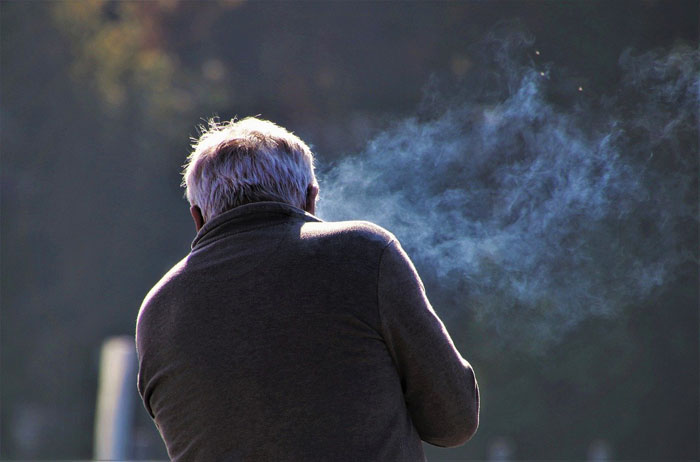
According to the June 2015 study "The anti-tumor activity of non-psychoactive cannabinoids"[7]: Using animal models, CBD has been shown to inhibit the progression of many types of cancer, including glioblastoma (brain cancer), breast, lung, prostate and colon cancer.
CBD is also being studied for its role in other inflammatory diseases, including chronic skin conditions such as eczema and psoriasis.
We can also add pancreatic cancer[8]. The above list is not exhaustive, of course, and CBD may have effects on other cancers.
This study adds that "Lung cancer cell lines appear to be particularly sensitive to the anti-invasive effects of CBD."
According to the 2016 study by the University of Madrid, already cited in this article: CBD combined with THC* can improve the anti-tumor activity of conventional chemotherapeutic drugs such as temozolomide (known as "Temodal", an anti-cancer drug) in certain types of cancer in mice.
What's more, the combined administration of THC, CBD and temozolomide produces a very strong reduction in the growth of xenografts generated with glioma cells (brain tumor) even when low doses of THC are used.
As the World Health Organization states: CBD is safe and generally well tolerated[9].
Given that cancer is a very serious disease, and that there could be both positive and negative drug interactions, we strongly recommend that you talk to your doctor before taking CBD.
According to several studies, including this one from 2019[10], " Cannabinoids* relieve tumor-associated symptoms (including nausea, anorexia and neuropathic pain) in the palliative treatment of cancer patients." What's more, CBD plays a role in improving overall well-being, acting on anxiety, pain management and even sexuality. To find out more, read our article: Improving your sex life with CBD.
* THC, cannabinol, cannabidiol CBD , cannabichromene, cannabigerol, ect.
THC warning:
We do not advertise THC. We do not recommend its use. We only quote scientific studies.
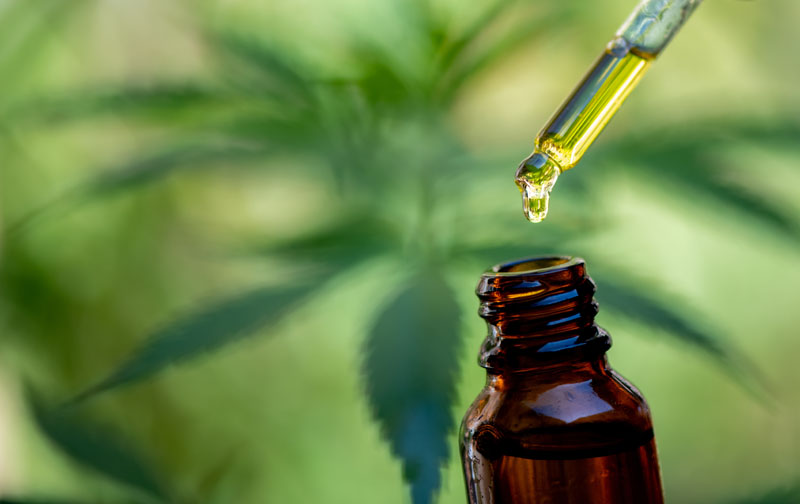
One of the most effective ways to take CBD is in oil form. All you need to do is place a few drops directly under the tongue, using the pipette, for around 30 seconds. According to the work of L.Leinow and J.Birnbaum, for cancer it is recommended to take a macro-dose, i.e. more than 20mg per day and up to 800mg per day, depending on your weight.
Although CBD has no side effects, and because everyone reacts differently to cannabinoids, it' s advisable to start with a low dose and then gradually increase it.